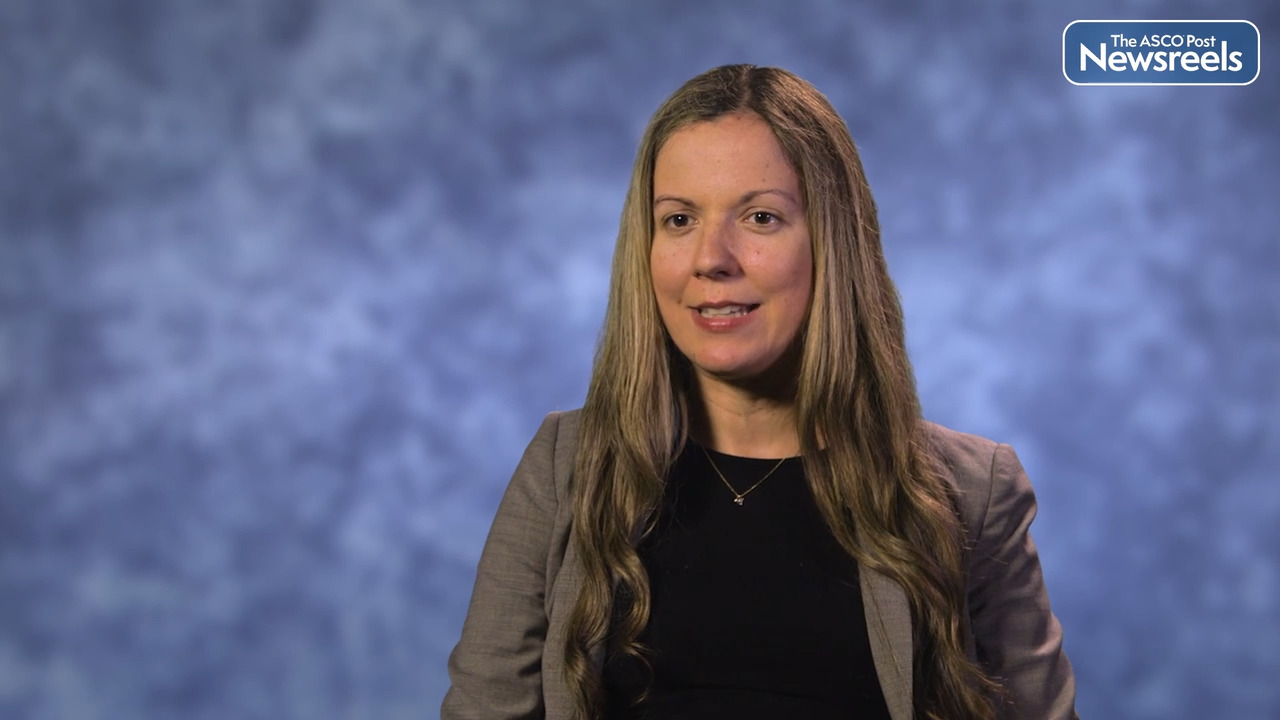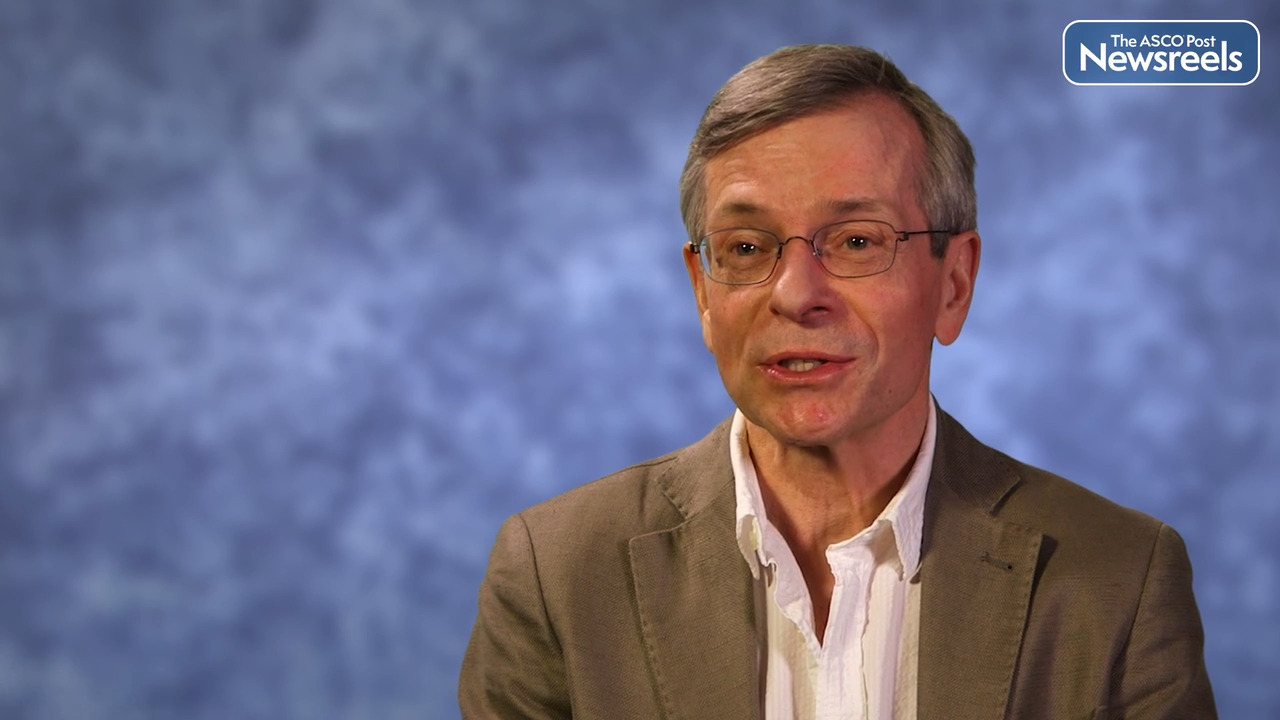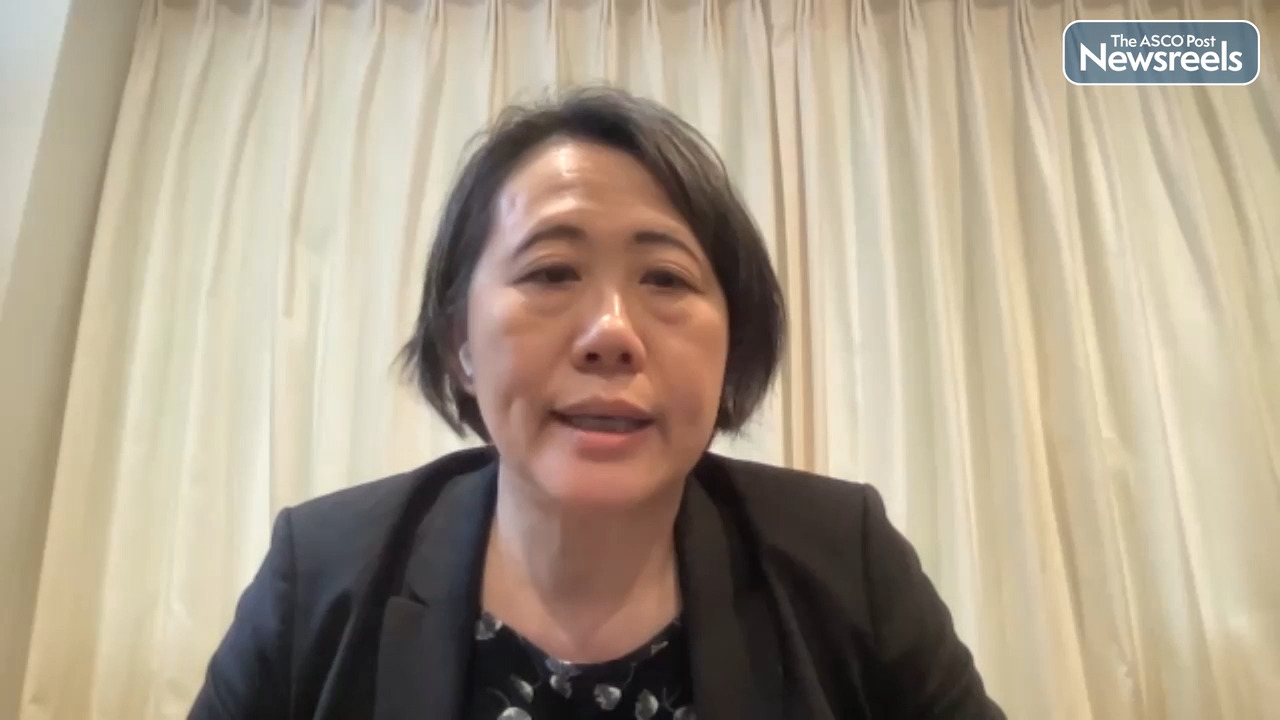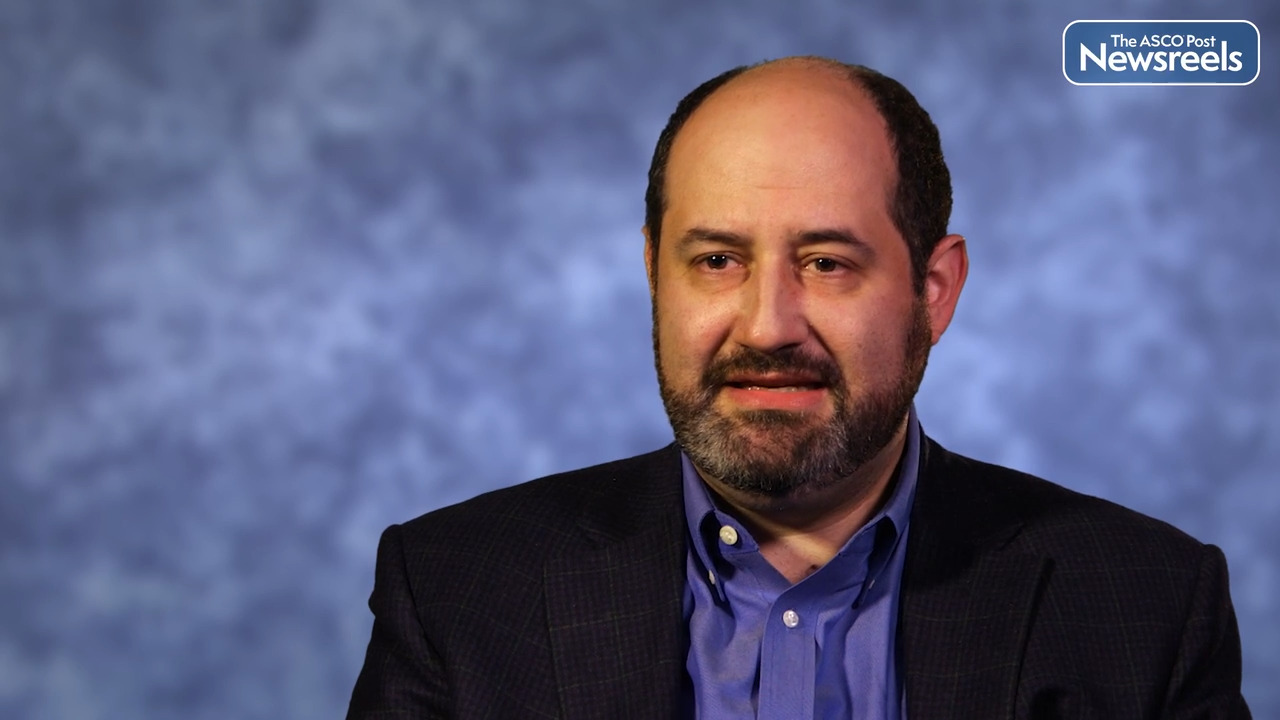Christine A. Iacobuzio-Donahue, MD, PhD, on Pancreatic Cancer: Novel Insights Into Genetics and Evolution
AACR Annual Meeting 2022
Christine A. Iacobuzio-Donahue, MD, PhD, of Memorial Sloan Kettering Cancer Center, discusses her research on the evolutionary features of advanced stage pancreatic cancers and the insights that may be used to help improve patient outcomes (Abstract PL05).
The ASCO Post Staff
Priscilla K. Brastianos, MD, of Harvard Medical School and Massachusetts General Hospital, talks about her efforts to better understand how brain metastases evolve genomically and to test such agents as abemaciclib, paxalisib, and entrectinib, which may stop their growth. Palbociclib, a CDK inhibitor, has already shown potential benefit. A national cooperative group trial is underway in multiple centers to identify novel treatments for patients with brain metastases, who typically have a poor prognosis (Abstract SY38).
The ASCO Post Staff
John B.A.G. Haanen, MD, PhD, of the Netherlands Cancer Institute, discusses findings from a phase I study designed to test the safety and efficacy of the CARVac (CAR-T cell-amplifying RNA vaccine) strategy to overcome poor CAR T-cell stimulation and responses in patients with CLDN6-positive advanced solid tumors. Men with testicular cancer in particular showed encouraging responses. Overall, some patients showed long-term CAR T-cell persistence more than 150 days post infusion. Partial responses seemed to deepen further over time (Abstract CT002).
The ASCO Post Staff
Nicolas Girard, MD, PhD, of the Institut Curie, discusses findings from the phase III CheckMate 816 trial, which is the first study with an immunotherapy-based combination to demonstrate improved event-free survival and pathologic complete response in the neoadjuvant setting for patients with resectable stage IB to IIIA non–small cell lung cancer. The results may benefit the 30% to 55% of patients whose cancer recurs after surgery (Abstract CT012).
The ASCO Post Staff
Lillian L. Siu, MD, of Canada’s Princess Margaret Cancer Centre, discusses biomarker-driven precision cancer medicine, the optimal sequencing of immunotherapy (IO) with standard treatments in curative settings, IO targets beyond PD-1/PD-L1 and combinatorial strategies, and next-generation adoptive cell therapies (Abstract PL06).
The ASCO Post Staff
Ari M. VanderWalde, MD, MPH, MBioeth, of The West Clinic, discusses results from the S1616 trial involving patients with metastatic or unresectable melanoma who had primary resistance to PD-1 or PD-L1 inhibitors. Compared with ipilimumab alone, the combination of ipilimumab plus nivolumab benefited some patients: those with tumors that responded to therapy showed an increased amount of CD8+ cells. Because there is no standard treatment for metastatic melanoma after failure of PD-1 inhibitors in BRAF wild-type disease, this research may provide a viable option in the future (Abstract CT013).





